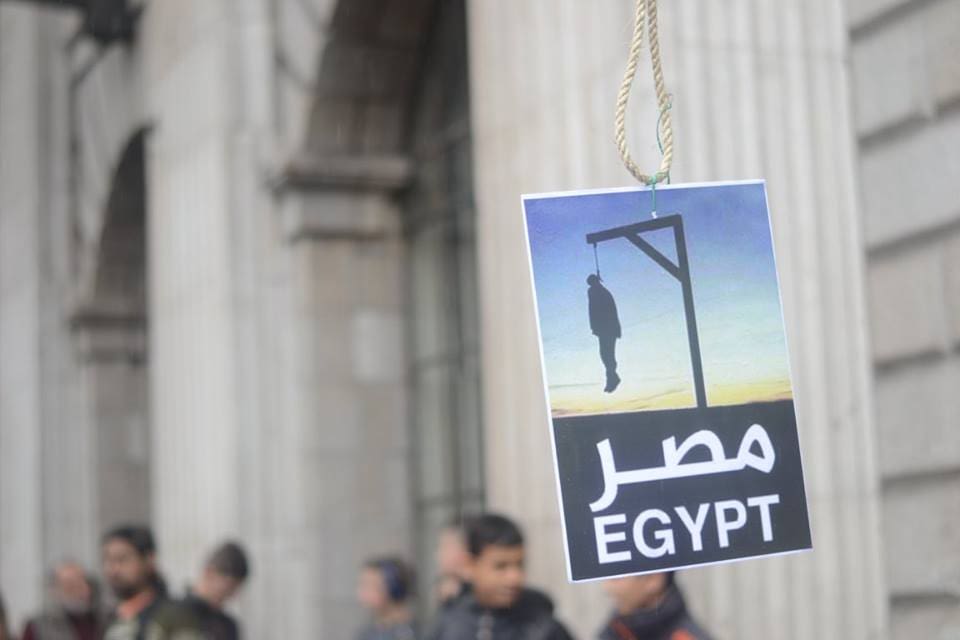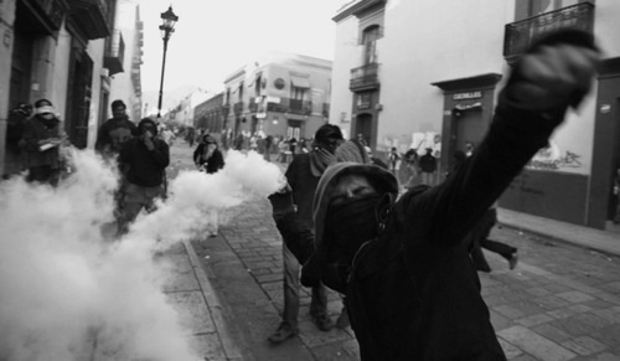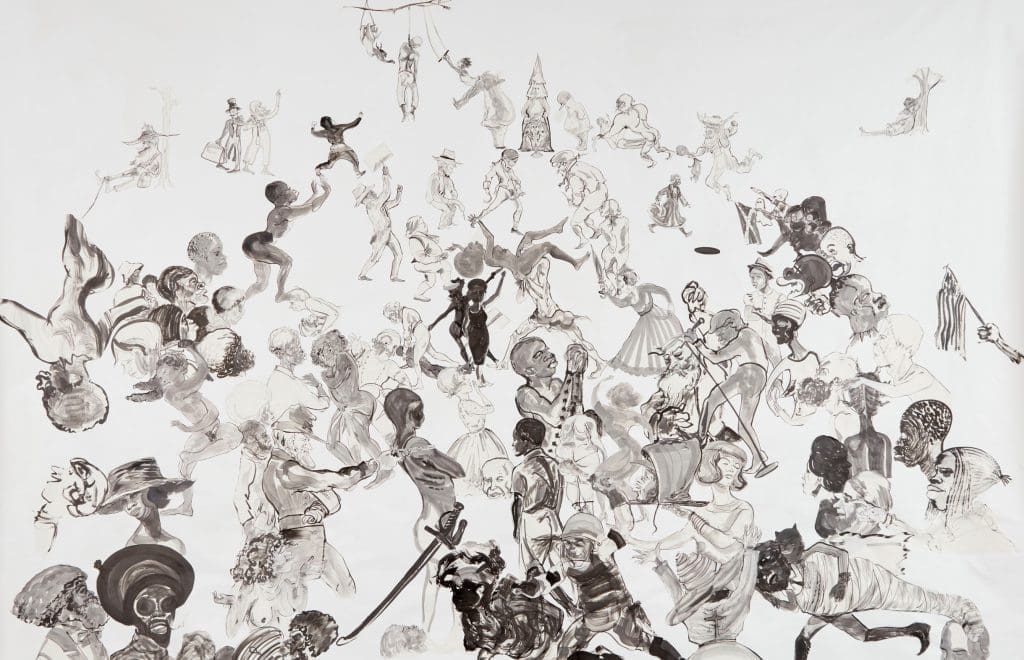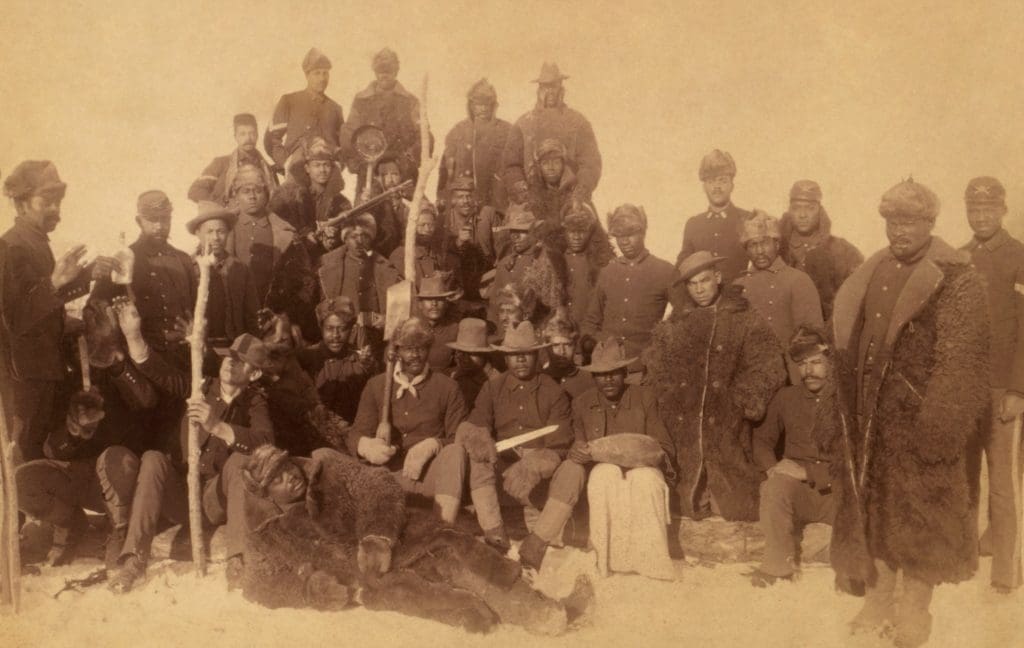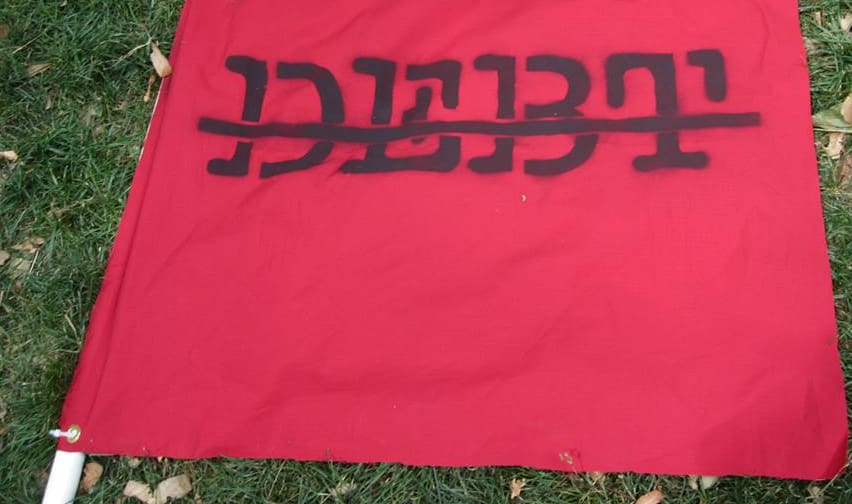Transcribed from the 30 January 2016 episode of This is Hell! Radio (Chicago) and printed with permission. Edited for space and readability. Listen to the whole interview:
“There’s so much education that needs to happen. People in the West need to humble themselves—I always like to say that—and look for other ideas and analyses of what is going on in Egypt.”
Chuck Mertz: On January 25th, 2011, the Egyptian Revolution began. After decades of totalitarian rule by president Hosni Mubarak, protesters took to the street and started a revolution. But what’s happened to that revolution over the past five years? And where does it stand today?
Here to tell us, live in studio, is Egyptian human rights activist and advocate Salma Hussein. Welcome to Chicago, Salma. Thank you very much for being here.
Salma Hussein: Thank you so much for having me here.
CM: Salma writes at the website In Quest For Justice, “a blog run by a Muslim female from Egypt who has done some traveling and can speak some English.”
Salma, the first question I want to ask you is about the January 25th 2011 revolution. Here in the US, we think of those protests on the street as just trying to get rid of Hosni Mubarak, having him leave power, and that’s the extent of it.
What was the January 25th movement about?
SH: Mubarak was just the head of the military dictatorship regime that has been in power in Egypt since the 1950s. The main slogan of the movement was “Bread and Freedom and Social Justice.” The movement was much more complicated than just the idea of getting rid of Mubarak.
Unfortunately, one of the false notions that people have about the Egyptian movement is that it was an 18-day-long sit-in that happened in Tahrir Square in downtown Cairo. People didn’t look beyond the downtown Cairo crowd at all of the mobilizations that happened outside, or the mobilizations that continued even after Mubarak left office.
The revolution, for me and for so many other Egyptians, only started on January 25th, and the struggle has continued to this day. There have just been different phases, and transformations in how the movement looks. But unfortunately the Western media has overlooked everything that has happened in between Mubarak’s leaving office, the presidential elections, the overthrow [of Mohamed Morsi]…
Coverage has been limited to electoral political events; everything in between does not get as much attention.
CM: It’s always black and white. I think we might be imposing our own view on Egypt—we only have a two party system; you’re either voting Republican or Democrat. I think far too often, American viewers assume there must be only two sides. Even multi-party parliamentary politics seems to confuse Americans.
So the idea that we have here in the US is that Egypt only has two choices: you can either have a military dictatorship that allows for—supposedly—security and stability, or you’ll get the Muslim Brotherhood and Islamic militancy that is (as far as how it’s depicted in the US) essentially voting Al Qaeda into power.
Are the two choices that Egyptians have either a military junta dictatorship or some sort of Islamist militant dictatorship?
SH: Unfortunately this is a very simplistic way to look at things, and I think we were victims of that. It was so hard to get journalists coming to Egypt to see things in any different light. All of the false notions and preconceived ideas that journalists and reporters brought with them affected how they covered what was going on. It even affected their choices of people they picked to talk to.
The majority of Egyptians do not really speak any English; people don’t seem to realize that the twenty famous English-speaking Egyptian bloggers and journalists are not necessarily a representation of the wide, complicated spectrum of Egyptians, who have many different orientations.
Even within the Muslim camp, if I could call it so, there are many other factions in addition to the Muslim Brotherhood. There are so many Egyptians who are practicing Muslims but are not necessarily affiliated with any political Islamic party or movement. So it really doesn’t help in understanding the situation to look at only these “two sides.” There’s so much else in between.
Personally, I wasn’t very politicized before the movement happened. Most of the people I was working with and organizing with also only started to be politically involved with the movement. We didn’t really have a label or any idea how we identify politically. We wanted basic rights. We wanted to have our voices heard.
In 2012, when the Islamists did win the elections—the majority of seats in the Parliament, and then the presidential elections—the leftist and liberal side of the spectrum didn’t like that. They said that elections are not the only way of doing democracy, and it would be fine if the military overthrew an elected president. Which in my view wasn’t very democratic.
So there are many fine details and contradictions. Sometimes views could come from the left side that are very extreme, and then views come from other parts of the spectrum—not necessarily leftist—that come closer to what leftists here would believe.
There’s so much education that needs to happen. People in the West need to humble themselves—I always like to say that—and look for other ideas and analyses of what is going on.
CM: You boycotted the 2012 presidential election that led to the presidency of Mohamed Morsi. Why did you boycott that election?
SH: I have boycotted every single electoral process that happened since the revolution happened, because I believe that it has all been run and controlled by the military institution. If the judiciary system is not independent, if the media is run by the state, if all of the outlets are being controlled by the military in Egypt, then how do we expect any fair process to take place?
After the parliamentary elections happened, the military decided to get rid of parliament. And the constitution. A bunch of constitutions. There were so many constitutions that were written and canceled in the past few years. And then Morsi was elected, and a year later, he left. What’s the point of voting for one presidential candidate or the other if the military can come at any time and decide that he shouldn’t be there anymore? What’s the point of voting in parliamentary elections when the military might decide in a few weeks that we don’t need a parliament now?
It was too early for any sort of elections to happen in Egypt. I thought in 2012, and still think now, that the environment over there does not encourage any sort of elections. If journalists are getting arrested and put in prison and even killed for simply making statements that the government does not agree with, then how could we possibly expect anything positive from a parliament or a president who doesn’t have any control over things?
CM: The United States is a very big supporter of the military leadership within Egypt right now, and the presidency of General Sisi. Wherever we go, the United States says that we’re there to bolster and protect democracy, to bring about democracy, No matter which horrible authoritarian government we’re backing, whether it’s in Bahrain or Saudi Arabia or wherever, we say that we’re there to help promote democracy.
If the United States—the United States government, not the people of the United States—really wanted to support and promote democracy within Egypt, what would you have the United States do?
SH: Stop sending weapons and tanks and helicopters to the military, I guess would be a good start.
People in Egypt have been suffering with US-made weapons. I was in situations where I saw people getting shot and killed in front of me. At the age of 21 and 22. All of the weapons and weapon systems that the Egyptian military uses are exclusively from the US. Egypt is the second largest recipient of foreign aid in the world from the US, just after Israel.
How are we supposed to counter all of this, as a nonviolent movement, as people just going out protesting in the streets, facing an army that’s supported by the US?
“I’ve seen friends, and strangers, involve themselves in complete suicide, going into actions and events nihilistically, to get themselves killed, because they think that maybe we should just die for the cause, for the world to recognize that we’re here.”
As I always say: from the beginning, in the first couple days of the uprising, it was very disappointing to hear the statements made by the US administration. And later on, when Mubarak was gone and everybody in the whole world was celebrating Egypt, it was a popular position to praise the Egyptian youth and the Egyptian movements and all of that.
But then a few weeks after, the military was still arresting people. I’m talking about 2011. These violations started happening as early as 2011 and continue today. So what is democracy, in the eyes of the US administration? How is military aid supporting democracy in Egypt?
I think it’s pretty clear that it’s not really democracy that’s the concern of the US administration when it comes to Egypt. Egypt is just a country that lies right next to Gaza and Israel, with the Rafah border crossing. This is how Egypt is viewed: that we need to maintain the US-encouraged treaty between Egypt and Israel is the only concern that the US has.
And in the past couple of weeks, when the Egyptian leadership started talking about countering terrorism, there have been a lot more statements coming from the US government about supporting Egypt’s war on terrorism, while the people who are being targeted by that war are students on university campuses, journalists, researchers, physicians, professionals, minors, women and men who are either speaking up against what’s going on or happen to be their own person at a checkpoint. That’s the war on terror that the US is supporting over there.
CM: How does this affect the view that people in Egypt have of the United States? Beyond that, how does it affect the view people might have even of democracy?
You were talking about how there are other types of democracy than electoral democracy. But doesn’t the idea of democracy get undermined by what the United States is doing in Egypt while saying they’re fighting for democracy?
SH: I remember at the very beginning of the uprising that people were picking up teargas canisters from the streets, and at that time I was translating for some international media outlets, and I happened to be working with American journalists. Every single person we talked to brought up the teargas.
They said, “We can see that this was made in the US. We want to know what the American people think of us. Do they like that we’re asking for freedom and justice and democracy like they have? Do we have the right to ask for these things? Why does the US do this? Why is your government sending teargas to counter our efforts to be in a better place?”
There were times when I saw people writing signs in English, for example, to try to get the attention of the media, and call upon the people of the world: “Look at us. We’re good. We’re trying to fight a good fight and we need your help.” But I think people started to realize that they shouldn’t be seeking any assistance or support or encouragement from the side of the US government.
But there were a lot more people—within the Islamist camp as well—who started to rally for certain candidates and work on campaigns. It was the first time that Egyptians had the opportunity to do all of this, in 2011 and 2012. It was wonderful to see, even if I had made the decision to boycott. It was very inspiring to see Egyptians from all over, different factions, looking to that solution.
With the overthrow of Morsi, and the canceling of parliament and constitutions, many people started to think that maybe we shouldn’t be thinking about democracy. Maybe it doesn’t work. This is the price we’re going to pay for choosing to work through their channels; maybe we should try something else.
Unfortunately, I’ve seen friends, and strangers, involve themselves in complete suicide, going into actions and events completely nihilistically, to get themselves killed, because they think that that is a solution. Maybe we should just die for the cause, for the world to recognize that we’re here.
Also, events that happen here in the US, like Black Lives Matter for example, get coverage in Egypt. People over there started to learn more about the internal complexity of injustice here in the US. I think it has been a lot of education and awareness for us Egyptians and people in the Arab world to see how democracy works in the US and to ask, what sort of democracy do they want us to have over here? I think unfortunately a lot of people might have lost interest.
CM: The United States has a military presence in Egypt. The idea is that the military is there, supporting the military government, because we’re so afraid of Islamic extremism and terrorism. That’s what we’re there, supposedly, to stop.
How much does the US military presence and support of the military regime in Egypt affect the chances of potential terrorist attacks by radical Islamists?
SH: The thing is, after Sisi was “elected” in 2014, he was promising people security and stability and all of that, but in 2014 and 2015 Egypt witnessed a dramatic increase in the number of attacks—if you want to, call it “terrorist” attacks. In many different places. Police officers and army soldiers are being killed all over Egypt. In the Sinai peninsula, in Cairo, in Giza, in so many places. It doesn’t seem like the military in Egypt can do much to stop this.
I have some contacts who are in Sinai, locals who are from there, who live there. They are constantly getting evicted and displaced, they continuously have to move around; there’s so much destruction because of the so-called “war on terrorism.” Many civilians in Sinai have been targeted. And still there is a security issue in the peninsula.
I don’t really know how much that has been helping the situation, or whether the US leadership or the Egyptian leadership are thinking about maybe trying something else. They could look at what they have been doing in the past five years—or the past ten or fifteen years. If it’s not working, why is the support continuing? If Egypt is not a secure place, if all of these terrorist attacks continue to happen, what’s wrong? What’s going on that we need to work on?
I don’t think that anybody is asking these questions.
CM: I want you to explain to our audience the amount of control the military has over the economy in Egypt. You cannot do business with Egypt without doing business with the military. As a consumer in Egypt, how hard is it to avoid military-owned products?
SH: Nobody knows for sure the proportion of the economy that the military controls, but people say it’s probably between forty to fifty—maybe sixty—percent of the Egyptian economy. There are entire cities that are military-run and controlled. They are in the real estate business; they’re producing food, they’re producing gas, anything you can imagine. You could be walking around in Cairo and see stands with soldiers selling mineral water and olive oil and olives. Their food products are everywhere in the market.
People also don’t think much about conscription, the compulsory drafting system . Males between the age of sixteen and thirty are drafted and forced to serve in the military for up to three years. That service sometimes means working on military farms, sometimes working in military hotels or wedding halls. So you could be working for two years—for free—on a military farm as a farmer-soldier.
It’s really complicated. This system has been going since the sixties, since Nasser came into power, and with the military consolidating its grip on the economy with all of the neoliberal economic practices they brought into Egypt with Sadat in the 1980s, they are spreading out to new industries. So it’s pretty huge.
“I went out to some of the anti-Morsi rallies in 2013, but then I realized that I didn’t want to be involved in that, because so many pro-Mubarak elements and pro-military, pro-police folks started to show up.”
CM: But here’s the thing: how supportive were the protesters in the January 25th protests, at that time, of that same military that is undermining democracy in Egypt? The footage that we saw here in the States was of protests taking place in Tahrir Square, and the military shows up in helicopters flying Egyptian flags, and everybody cheers. On our news they said that this shows how popular the military is throughout Egypt.
So when those protesters were cheering those helicopters, was that reflective of the fact that everybody in Egypt loves the way that the military controls the country?
SH: There is a very funny slogan that came out that everybody was translating and passing on, and it was “The Military and the People are One Hand,” with footage of army soldiers carrying babies and flags and things. But I was present in the sit-in for the eighteen days with my siblings, throughout the whole time, every single day, we slept in the square. And I was detained, with a colleague, by the military, one week before Mubarak was ousted. That was four days after the movement started. And there were military soldiers detaining people coming out of Tahrir.
That was the moment I started to think about things differently. I went back to the square and I told people about what happened, and some of them didn’t believe me. I remember the night Mubarak was ousted, everybody was celebrating, there were fireworks everywhere and people were dancing and singing and taking their tents out of the way. But there were a few people who said, “Listen, we’re not going anywhere. We weren’t just here for Mubarak to leave. The military is still here.”
There were people who shared eyewitness accounts with me that on the Day of Anger, the 28th of January, after the police ran out of ammunition the military came to resupply them. But the military decided to step back a little bit when they saw how strong and popular the movement had become, and they tried to start a discourse that supported the movement, saying things like “We stand with the people of Egypt,” and made it seem like they got rid of Mubarak for our sake.
But a few weeks later, in March 2011, the military attacked the sit-in that was still left in the square. These things were happening, and people weren’t paying attention. Very few people, like myself and some of my organizer friends, continued to be out in the streets throughout 2011. Towards the end of the year, when the military had brutally attacked a lot more sit-ins, more people started to realize. But the Western media did not pick up on this.
CM: So jumping forward, Morsi leaves office in 2013 after people take to the streets; there are protesters asking for the military to overthrow the leadership of Morsi. What explains that to you? Does it show that people still held the military in some high regard—at least in higher regard than they held Morsi?
SH: For that whole year Morsi was in office, again, he was just a civilian face for the same exact set of institutions. He wasn’t respected by the military or the police or anybody. All of the media outlets criticized him day and night. That year, a kind of character assassination happened. A lot more people became convinced that Morsi shouldn’t be here, and he was responsible for all of the things that happened in Egypt in the past sixty years or something. There was very little mention of the military rule at that time.
I was shocked, personally, towards the beginning of June of 2013, to hear people—even people I knew and people I respected and looked up to—speak about asking the military to come in, as if the military is not there already anyway. I didn’t think it was serious, to be honest with you. I went out to some of the anti-Morsi rallies in 2013, but then I realized that I didn’t want to be involved in that, because so many pro-Mubarak elements and pro-military, pro-police folks started to show up.
Anybody who was anti-Morsi became “revolutionary” automatically, even if they were Mubarak supporters and loyalists of the old regime. I was in a very critical place; many people like myself were critical of both Morsi and the military. But it seemed like all of the media in Egypt (and also the international media) made it sound like everybody in Egypt was only critical of Morsi. That was very disappointing for me as well. Because again, voices like mine—and even people who supported Morsi, whether they were Muslim Brotherhood or not—were not given any platform to speak about what they think should happen.
Then three days after the June 30th protests happened, el-Sisi came in and just took over, basically.
CM: Then you write in October 2014 about how, at universities all over the country, thousands of students are being arrested because they’re doing what college students do: they talk about government.
So thousands get arrested in October 2014, but when I was doing my research I was looking at reports in the Western media: they were constantly labeling those students as Muslim Brotherhood members or as Islamists.
I’m certain that it is varied and there are different opinions and different groups and different goals—but for those of us who don’t know, here in the US, what is the student movement about today? And what is the January 25th movement about today in Egypt?
SH: There were so many teenagers, people who are now university students, who got politicized through January 25th, and their entire worldview has completely changed and transformed since that happened. These kids went to school, and they wanted to have a space to talk about their opinions and share their ideas and thoughts.
When I was in college, the Muslim Brotherhood was the most visible student force on campuses, but then there were also different elements, including ordinary people who don’t necessarily identify as anything.
A lot of these people are—if I could say—former revolutionaries. But people can’t continue to be involved the same way, because the situation is so different than how it was a few years ago. There are people who have friends and family members in prison. Still, people just want to organize on campus.
Universities like Al-Azhar, for example, and Cairo University and Ain Shams University have been surrounded by so much security. You have to go through an interrogation and a machine, have everything checked, every single day, before you go to campus. There are police all over. In every single campus, even in women-only colleges. They didn’t allow student union elections for two years. So there’s a lot that’s happening.
Most of the youth who were involved in the movement were students. So they thought they could bring that onto campus…but there are many professors, teachers, and staff who are very close to the government. That’s a necessity in Egypt. Some of them say provocative things or report on their students, and support the government openly and continuously, talking politics in biology lectures. A lot of the students are irritated by that. So they speak up. They say something.
Then, as a result, they get arrested or locked up, killed in some instances.
CM: One last question for you, Salma, and it’s what we call the Question from Hell, the question I’m going to hate to ask, you might hate to answer, or our audience is going to hate the response.
How naive were the protesters on January 25th, 2011, to believe that they could get a democratic government free of the military that had so empowered itself within the Mubarak government and the government since, as you were saying, dating back to Sadat and before?
SH: People really didn’t know anything about how powerful the military is, because for fifty years or more, anything happening within the military institution was a national security secret. Their budget, any information about the military was never discussed, in the parliament or in the media. I only learned about this because I could read English. You wouldn’t see anything in the newspapers. Or anywhere, really: even all of the history books that we studied at school praised the military and the Free Officers’ Movement in the 1950s, as opposed to how awful King Farouk was and all of that.
I don’t think that Egyptians knew much until they had personal experience with the military that started to be very present and very visible. We didn’t grow up seeing tanks all over, or seeing soldiers with guns and masks in downtown or around the country. People were pretty naive. Maybe idealistic, I would say. I was just 21 years old. I was still in school. There were people who were thirteen and fourteen who were participating in the movement, and I don’t think anybody could have imagined the amount of atrocity that ended up happening.
And I think we learned the hard way.
CM: Salma, this is an honor. I really, really appreciate you being here. Thank you so much.
SH: Thank you so much.
Featured image source: International Students Against the Coup (Facebook)

